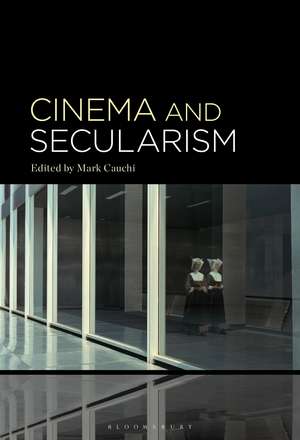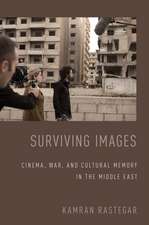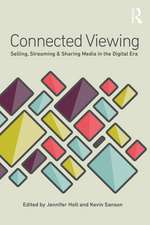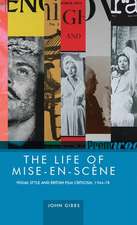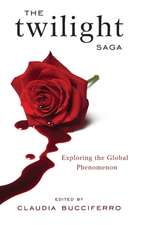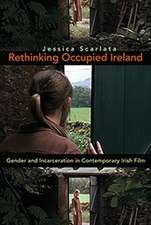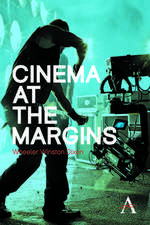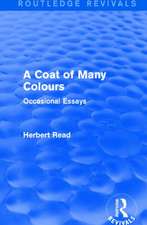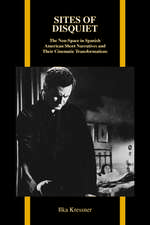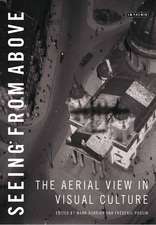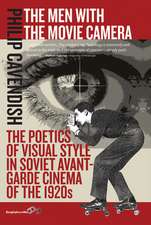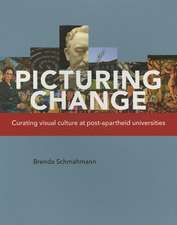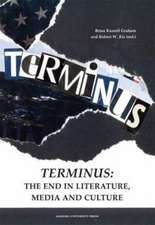Cinema and Secularism
Editat de Mark Cauchien Limba Engleză Hardback – 10 ian 2024
Preț: 540.54 lei
Preț vechi: 774.14 lei
-30% Nou
Puncte Express: 811
Preț estimativ în valută:
103.43€ • 107.100$ • 85.41£
103.43€ • 107.100$ • 85.41£
Carte tipărită la comandă
Livrare economică 15-29 aprilie
Preluare comenzi: 021 569.72.76
Specificații
ISBN-13: 9781501388873
ISBN-10: 1501388878
Pagini: 288
Ilustrații: 14 bw illus
Dimensiuni: 152 x 229 x 25 mm
Greutate: 0.55 kg
Editura: Bloomsbury Publishing
Colecția Bloomsbury Academic
Locul publicării:New York, United States
ISBN-10: 1501388878
Pagini: 288
Ilustrații: 14 bw illus
Dimensiuni: 152 x 229 x 25 mm
Greutate: 0.55 kg
Editura: Bloomsbury Publishing
Colecția Bloomsbury Academic
Locul publicării:New York, United States
Caracteristici
Takes a broad approach, investigating film history, film theory, aesthetics, film criticism, as well as the philosophy, politics, and history of secularism
Notă biografică
Mark Cauchi is Associate Professor in the Department of Humanities and in the Graduate Program of Social and Political Thought at York University, Canada. He is co-editor of Immanent Frames: Postsecular Cinema between Malick and von Trier (2018).
Cuprins
List of Images Acknowledgements Introduction: Screening the SecularMark Cauchi (York University, Canada) Part I: Is Cinema Secular? Genealogy, Theory, Philosophy1. Secularist Film Studies and the Occlusion of the SecularMark Cauchi (York University, Canada2. Deleuze's "Conversion of Belief": The Time-Image and the Disruption of Cinema's Secularist OriginsJohn Caruana (Toronto Metropolitan University, Canada)3. The Secular as Sacred: Cinema and Buddhist RitualFrancisca Cho (Georgetown University, USA)Part II: Situating Secularism: Culture, Politics, and Cinema4. Ousmane Sembène's Moolaadé: Sacred Space as Refuge and Political AgencyNikolas Kompridis (Humboldt University, Germany)5. Cinema as a Secularizing Medium in the Middle EastWalid El Khachab (York University, Canada)6. The Impossible Possible: Secularism and Hindi Popular CinemaSheila J. Nayar (University of Utah, USA)7. Observational Secular: Religion and Documentary Film in the United StatesKathryn Lofton (Yale University, USA) Part III: The Dis/enchantment of the World in Moving Images8. The Wonder of Film: Science, Magic, and the Endurance of EnchantmentCatherine Wheatley (King's College London, UK)9. Vegetal Life, Plant-Soul: Early British Film FlowersSarah Cooper (King's College London, UK)10. "There's a sort of evil out there": Uncanny Secularity in Lynch's Twin Peaks: The ReturnRobert Sinnerbrink (Freie Universität, Berlin, Germany)List of ContributorsIndex
Recenzii
Few books have surprised me as much as Cinema and Secularism, which very generously and precisely asks the secularists among us, of which I am one, to examine our own assumptions about what secularism is, where most of us simply accept it as an essential value, and thus, potentially, as non-secular. The range of films, nations, periods, and concepts in evidence here-not to mention the sheer quality of the writing-is seriously impressive and proof of just how much this conversation needs to happen; proof that the questions matter to everyone.
Cinema's technological modernity has surprisingly created spaces where wonder in the face of the unknown, a sense of the sacred, and non-theological faith thrive undisturbed. Yet academia's avowed secularity has created a blind spot for such spaces. This collection of original, well-researched chapters, spanning a century and numerous cultures, establish a rich new discursive context for cinematic immanence.
The field of "religion and film" emerged out of a desire to reveal what had consistently been lacking in so much secular film studies scholarship. Now the field has been so thoroughly covered that the question of the secular emerges again. Fortunately, Mark Cauchi and the contributors here provide ample pathways through the secular to think about how secularity is framed, plotted, and edited on screen.
Cinema's technological modernity has surprisingly created spaces where wonder in the face of the unknown, a sense of the sacred, and non-theological faith thrive undisturbed. Yet academia's avowed secularity has created a blind spot for such spaces. This collection of original, well-researched chapters, spanning a century and numerous cultures, establish a rich new discursive context for cinematic immanence.
The field of "religion and film" emerged out of a desire to reveal what had consistently been lacking in so much secular film studies scholarship. Now the field has been so thoroughly covered that the question of the secular emerges again. Fortunately, Mark Cauchi and the contributors here provide ample pathways through the secular to think about how secularity is framed, plotted, and edited on screen.
